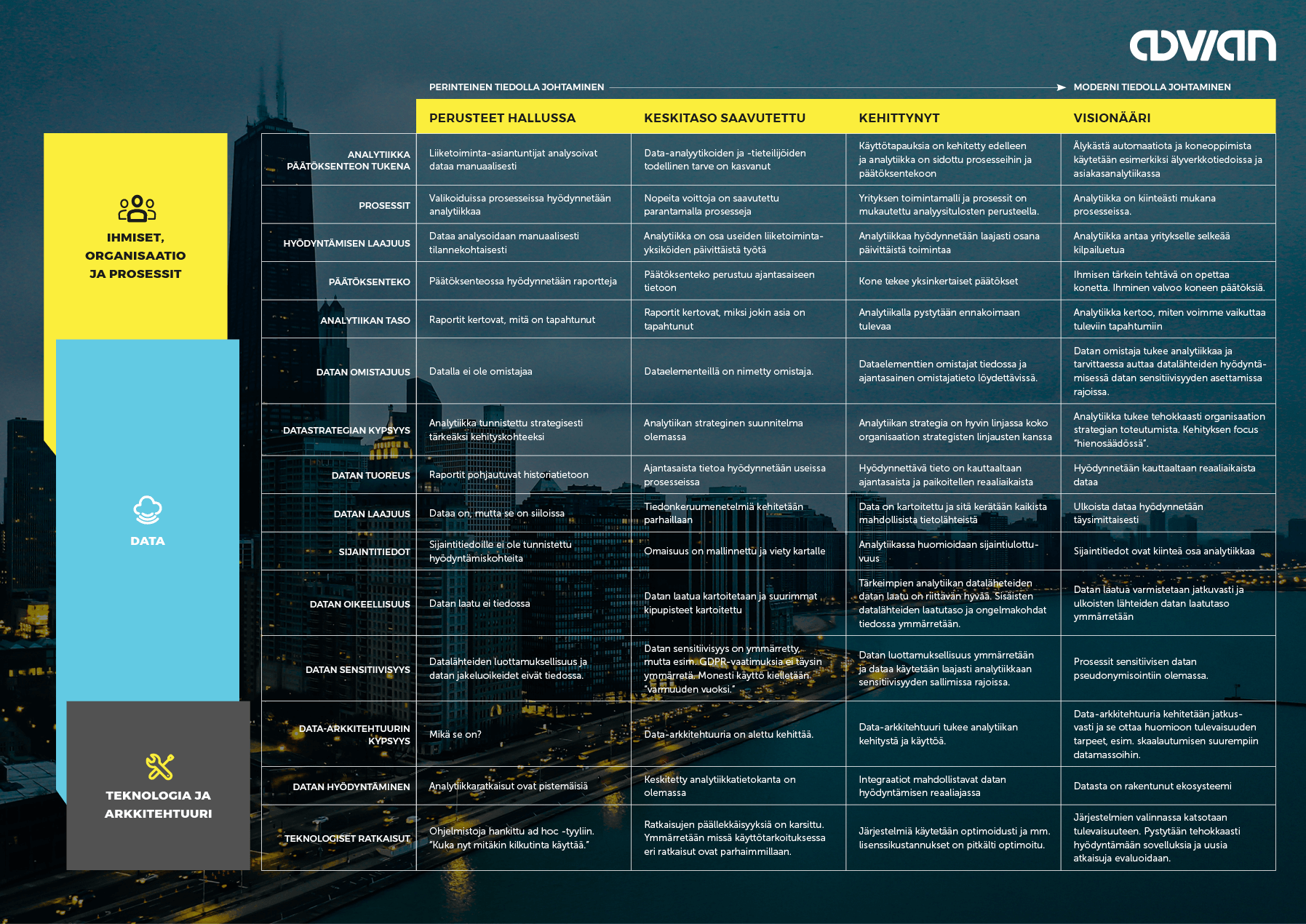In today's fast-paced and constantly changing business landscape, it's no secret that data has become a driving force behind decision-making and value creation. Firms are more often turning to data to inform their strategies and drive growth. However, this doesn't mean that a technology-first mindset is the answer. Instead, the key lies in the data itself and understanding its potential and integrating it into the core of a company's strategy.
Value creation through data
Increasing global uncertainties and the general course of development in all industries has lead to firms being even more data-driven in their decision-making processes. However, this doesn't mean that a technology-first mindset is adapted – it's quite the opposite. In order to effectively leverage data, it's critical to prioritise fulfilling business needs and creating value in each function, and only then finding the appropriate solutions and technologies to support these efforts.
/ Data is business
The biggest challenge in turning priorities around lies in the internal cultural processes. Data that enables value creation is no longer only the IT department's responsibility, but rather all business functions need to understand the potential of data and take ownership of their data to make informed decisions. To combat this challenge, make data reach its fullest potential and create value, data needs to be seen as a core part of the company's strategy, and IT and business need to break the silos. This requires a shift in mindset and a willingness to collaborate across departments. By breaking down silos and fostering a culture of cooperation, businesses can unlock the full potential of their data and drive value for the company. Data is now everyone's business.

How to get started?
Getting started with the cultural shift and unleashing the potential of data, consider the following:
- Break down silos: To fully realise the potential of data, it's essential to break down silos between IT and other business functions. Encourage collaboration and open communication across departments to ensure that data is being used effectively.
- Foster a data-driven culture: Encourage all employees to understand the potential of data, how it can be used to drive business success and make informed decisions, for example through training, education programs and regularly analysing data.
- Evaluate and optimise data usage: Review and evaluate how data is being used within the organisation. Look for opportunities to optimise your own data, but also external data, and ensure that data is being leveraged effectively.
Do you want to know more? Book a meeting with our experts!
Book a time that that suits you in the calendar below.

Learn more about our Data Advisory services
Dive deeper beneath the surface with us and maximise your business benefits.

Topics: News, Consulting












